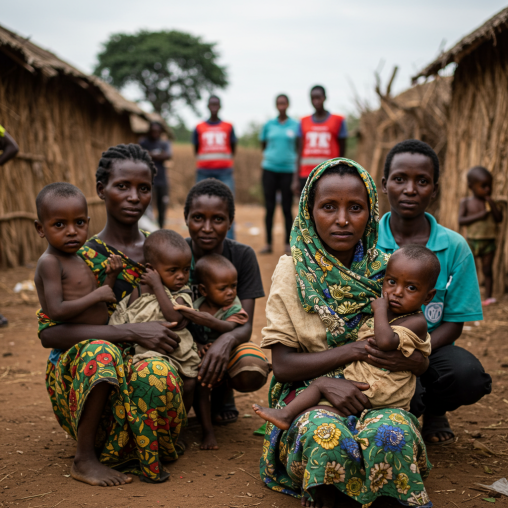Addis Ababa, Ethiopia – Date of Release: Saturday, May 3, 2025 – The United Nations World Food Programme (WFP) has issued a stark warning regarding the escalating hunger crisis in Ethiopia, announcing drastic reductions in aid distribution due to a critical funding shortfall. This development threatens to push millions of already vulnerable Ethiopians further into severe food insecurity and malnutrition.
The WFP revealed today that a significant lack of financial resources necessitates an immediate suspension of life-saving malnutrition treatment for an estimated 650,000 women and children across the country, effective this month. This cutback comes at a time when over 10 million people in Ethiopia are grappling with acute food shortages, exacerbated by ongoing conflicts, regional instability, displacement, climate-related shocks such as drought, and persistent economic hardship.
“This is a breaking point,” stated a WFP spokesperson in Addis Ababa. “We are being forced to make impossible decisions that will have devastating consequences for the most vulnerable. Without urgent funding, we will see a dramatic rise in malnutrition and hunger-related deaths.”
The funding crisis has already led to reduced rations for those receiving assistance. Severely food-insecure Ethiopians currently receive only 80 percent of their minimum required food, while refugees in the country are surviving on a mere 60 percent ration. The WFP now projects that if substantial new funding is not secured by June, it will be forced to halt all cash and in-kind food assistance for up to one million refugees residing in Ethiopia.
Ethiopia hosts a large refugee population, primarily from neighboring countries facing conflict and instability. These refugees rely heavily on WFP support for their basic survival. The cessation of aid will leave them in an extremely precarious situation, further compounding the humanitarian crisis.
Moreover, the funding shortfall jeopardizes the WFP’s ability to provide daily school meals to approximately 470,000 children, including 70,000 refugee children. These meals are a crucial safety net for families struggling to feed their children and often serve as a significant incentive for school attendance.
The WFP urgently appeals to the international community to step forward with the necessary financial support to avert a catastrophe. An estimated $222 million is required between now and September 2025 to allow the agency to maintain its current operations and reach the millions in dire need of food and nutrition assistance.
“We have the capacity and the logistical framework in place to deliver aid,” the spokesperson emphasized. “What we lack are the resources. The time to act is now, before it is too late to prevent widespread suffering and loss of life.”
The ongoing violence and insecurity in regions such as Amhara continue to disrupt humanitarian operations, further complicating the delivery of aid to affected populations. The WFP stresses the need for safe and unhindered access to all vulnerable communities to ensure that assistance can reach those who need it most.
About the World Food Programme (WFP):
The World Food Programme is the world’s largest humanitarian organization, saving lives in emergencies and using food1 assistance to build peace, stability and prosperity for people recovering from conflict, disasters and the impact of climate change.
Discover more from Nexus
Subscribe to get the latest posts sent to your email.
